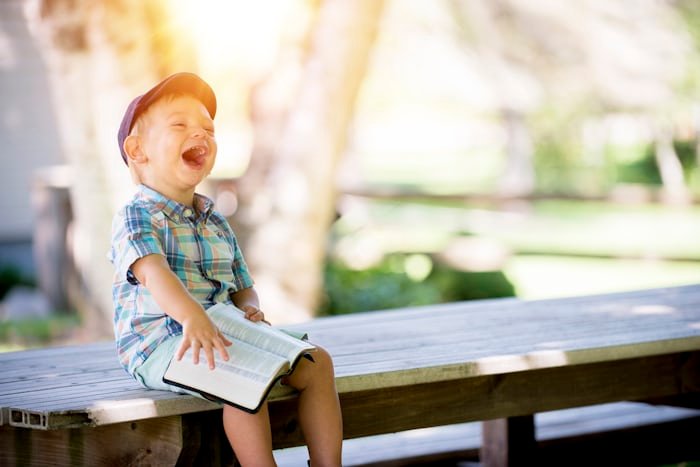Inculcating discipline into a child is one of the crucial and most challenging parts of parenting, and there is no stage in a child's upbringing where we can undermine its importance. It's no surprise that a lot of parents are struggling with that particular obligation in the world today because sometimes, finding a balance with disciplining a child can be very challenging, and unfortunately, many parents never get it right.
You can't be too rigid or soft; it's like handling an egg in your palm. When you hold it too tightly, it breaks, and when you decide to give it some space, it might just fall and break as well.
I have seen parents succeed with this obligation without stress, while it's the other way around for some parents despite doing everything possible to set things right. It's not always the parents' fault in every story of an undisciplined child; there are kids who just choose to be something else, frustrating their parents, but in the end, we have the parents to blame because it's their responsibility. You will agree with me that once a parent fails with teaching discipline, the future of a child becomes complicated, and that's one of the reasons why I always insist that it's not proper to become a parent when we ain't ready.

I am one of those who place so much importance on teaching discipline, just like I was taught, but with a little bit of an upgrade because even the world has upgraded a lot in the past decades.
Discipline has to be taught from the moment a child can learn because waiting until a child grows before doing the needful might be too late. It is something that must start very early, and this has always been my plan in preparation for parenting.
I watch my mom scold and caution my younger siblings while crawling, and it had a significant impact on them as they grow. At the age of three, my siblings understand eye gestures even more than some adults, and mom would barely say a word before they adjust with whatever they were doing that she doesn't want.
The importance of teaching kids discipline very early in life can't be quantified, and it's not just for the good of the kid because when a child is properly trained in every aspect of life we can think of, the parents would definitely live with peace of mind.
I used to have a neighbor who doesn't see the need to start teaching her daughter to be disciplined at a young age. This little girl of three years was a headache to almost everyone because she can scream for straight 30 minutes over something unnecessary, and the mother would just watch her.
It got so bad that she would wake up in the midnight and start screaming, waking up everyone, including the other kids in the compound. We had a conversation one evening, and I told her to always caution the little girl, and she said the little girl will change as she's growing.
I wanted to reply to her but felt it was unnecessary because she sounded very bold with the statements, and I had to look at her older daughters; they lack not just discipline but respect, and I fear what the future holds for them.
Depriving a child their basic needs isn't teaching discipline, and it would further push them in harm's way, so doing this isn't an option for me.
I have seen parents who deprive their kids some important things like food and even care, all in the name of teaching discipline. It actually doesn't work that way because once that child has a means of getting those things by him or herself, you've lost control as a parent, and that could just be the end.
While growing, my mom, despite being a disciplinary officer, never deprived us something she had in the name of teaching discipline. I remember a particular day I went to play football when she sent me on an errand and returned home very late, injured.
I was reluctant to go home but didn't have a choice. Upon getting home, mom welcomed me and even treated my wound. She gave me dinner before asking me where she sent me to.
That midnight, while I was fast asleep, she woke me up to give me a thorough beating, one of those I will never forget in my life. She sat me down after the beating and talked some sense into my head. I wept bitterly, not just because of the cane, but because every word she said sank deeply into my head.
If she had chased me back or deprived me of food that night, I could have sorted myself out, and that's the beginning of me staying out late since I have somewhere to pass the night and a way of feeding myself.
Another thing I intend doing is teaching discipline alongside the word of God because it helps strengthen the foundation of whatever you are trying to teach your kids. The Ten Commandments is a good way to start, ensuring my kids understand them because that's a great guide for them in my absence.
I can teach a child not to do things while his/her peers sound very convincing when they are away from home, but with the word of God guiding them, they can resist temptations bigger than what my warnings can do.

Finally, I find it terrible for parents to scold a child without having a conversation after the whole punishment. That's not disciplining, and kids only see wickedness if that's your approach.
For those punishments to be effective, you must have a strong conversation that will sink deeply into the child's head. He or she must understand the reason for the punishment so that there won't be a next time.

It's a long list of things to do while aiming to teach discipline, but what matters most is understanding the best approach for your kids and ensuring they get the message you are passing across to them. Without punishment, some kids don't get the message, while some just need a heart-to-heart conversation to sit tight, so without knowing which to do, we might be doing things wrongly.
Posted Using INLEO
most parent thinks that is hitting a child is the only way to discipline a child.no take away there favorite toys is another way to discipline the kids. general parent should be role model to there kids.